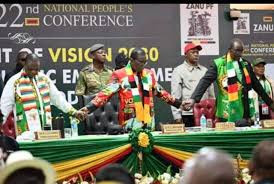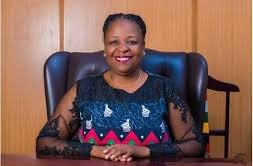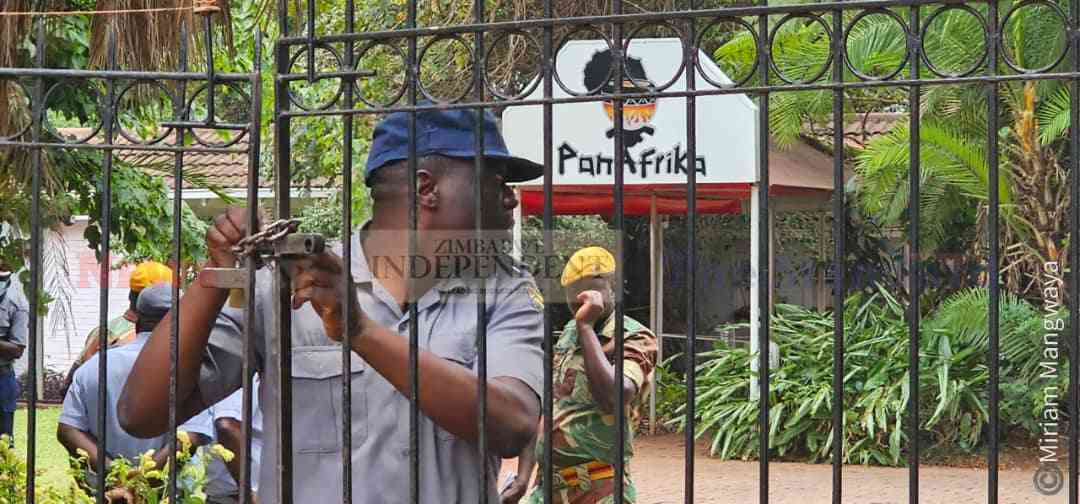
ZANU PF only fears regime change machinations of the West after neutralising opposition political parties, the ruling party has said.
Zanu PF enjoys a two-thirds majority in the National Assembly and controls the upper house following the recall of lawmakers by Citizens Coalition for Change (CCC) self-imposed interim secretary- general Sengezo Tshabangu.
CCC founder Nelson Chamisa last year resigned from the political formation, saying it has been infiltrated by Zanu PF. CCC has splintered into three formations led by Tshabangu, Welshman Ncube and Jameson Timba.
In a central committee report to the 22nd National People’s Conference, which ended on Saturday, the Zanu PF national security department said the opposition’s activities “remain subdued following their electoral defeat in 2023”.
“In particular, the numerous factions of the former main opposition have continued to fragment in utter disillusionment,” Zanu PF said.
“Their ideological bankruptcy and umbilical connection to the West have rendered its activities unpopular with discerning citizens. Though there are underground attempts by the Nelson Chamisa-led faction of the opposition to resurrect, it is increasingly becoming abundantly clear that it has no popular political agenda besides Chamisa’s persona or unjustified dislike of Zanu PF, even where it delivers.”
The department said economic insecurity continued to be a threat to the country, given decades of hostile foreign policy programmes of the West targeted at the country’s economy.
“The ZIDERA Act remains in place along with the Global Magnitsky law against the first secretary and other people in the country. Despite this continued hostility, the country’s economy continues to improve and strengthen,” the report said, adding: “The National Development Strategy 2 will be a vital cog in the fight against economic insecurity and all party organs must be rallied in its support.”
- Chamisa party defiant after ban
- Village Rhapsody: How Zimbabwe can improve governance
- News in depth: Partisan police force persecutes opposition, shields Zanu PF rogue elements
- Chamisa chilling death threat bishop defiant
Keep Reading
Zanu PF said the regime change agenda of the West, led by the United States, remained the most potent threat, with economic insecurity emerging as the theatre of hybrid warfare contestation.
“Attempts at fomenting internal dissension with the hope of this degenerating into antagonistic contradictions should be watched and guarded against in the next months through robust efforts of promoting unity of purpose and discipline in the party,” the department said.
Zanu PF is in a quandary over attempts by supporters agitating for the extension of President Emmerson Mnangagwa’s term in office beyond the constitutionally-mandated two terms, which end in 2028.
The party passed a resolution to push the government to facilitate constitutional amendments to extend Mnangagwa’s tenure to 2030.
According to the report, Zimbabwe’s national security situation has remained calm and peaceful with no credible signs of active mobilisation to disturb the peace and harmony prevailing in the country.
“Internal security remains strong, with most of the potential malcontents such as self-exiled political activists having been constructively contained earlier in the year,” it said.
“Their calls for public disobedience campaigns have largely failed. It is worth noting that the activities of hostile regime change adjuncts that operated in the country have also diminished.”
The department also claims that the economy is experiencing a positive trajectory, while citizens’ resilience is expected to continue to douse any potential attempts at civil disobedience.
“It is not anticipated in the next 12 months that any grouping in the country can successfully mount public disobedience campaigns and disturb the peace and tranquillity currently being enjoyed by the country,” the party said.
Describing teachers’ unions as “rogue” for disruptive work stoppages, Zanu PF said job actions had reduced as more civil servants began to understand government’s development trajectory.
“It is anticipated that as revenue inflows improve, the government should continue to make commensurate improvements in the conditions of service of its employees and pensioners, particularly in the coming 12 months,” the party said.
However, the party flagged the illegal parcelling out of council and State land by land barons claiming to be party supporters, adding that their activities resulted in “evictions and demolitions much to the chagrin of the populace, bringing the name of the party into disrepute”.
Zanu PF emphasised the party’s supremacy over government, saying the principle is born out of the understanding that Zanu PF deployed officials to government in various capacities.
“It is, therefore, important that these deployed officials continually assert and implement party programmes. However, operationally, there is no legal instrument to enforce this principle. As such, there is a need for a governing document to regulate this relationship,” the party said.
It said corrupt activities of “rogue government officials” continued to bleed the fiscus of much-needed revenue, especially at the country’s borders.
“The party will need to further strengthen government institutions that fight corruption and bring culprits to book.”









